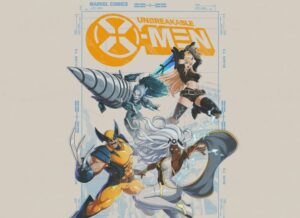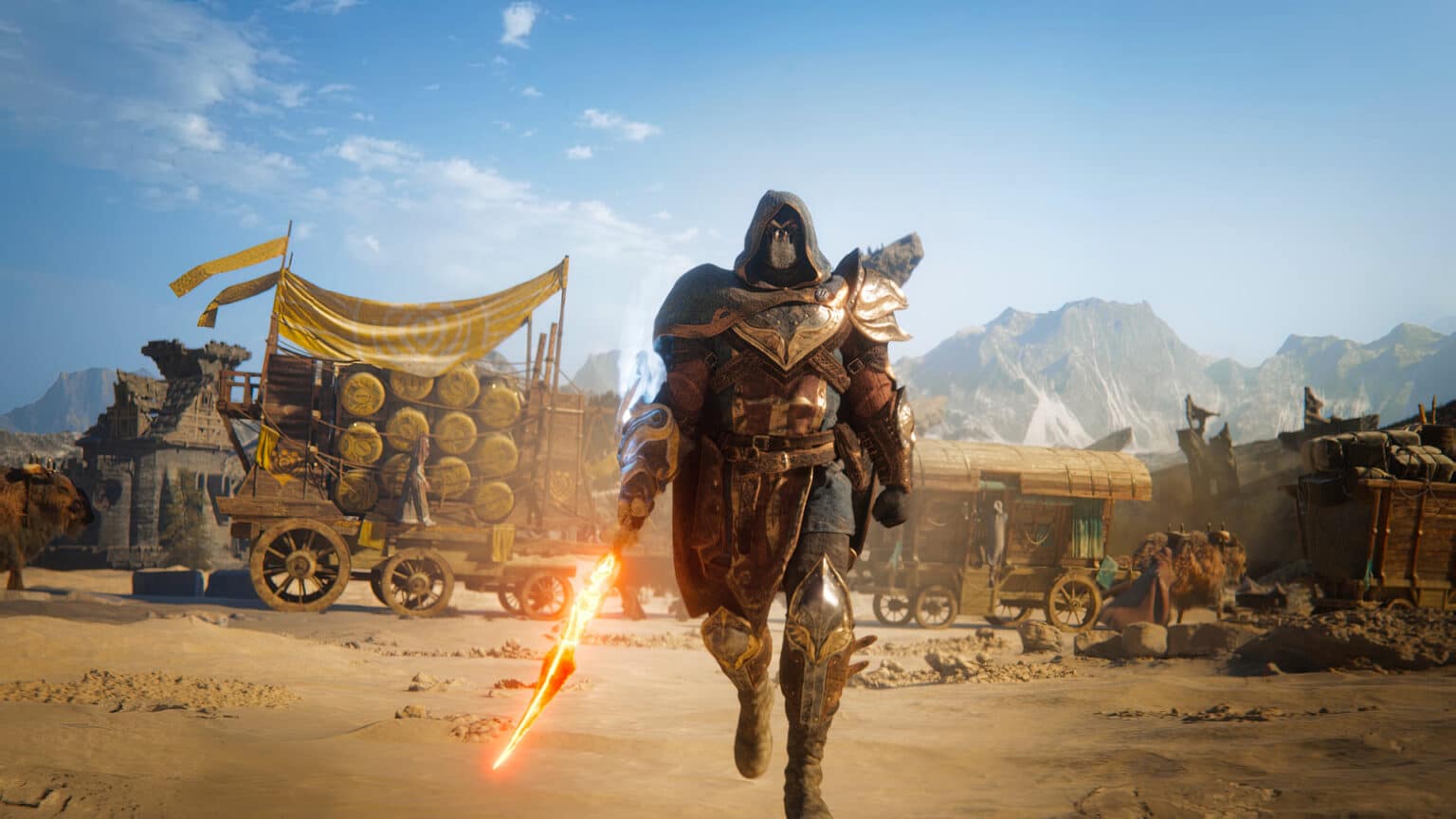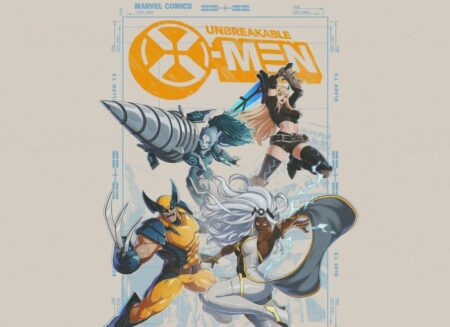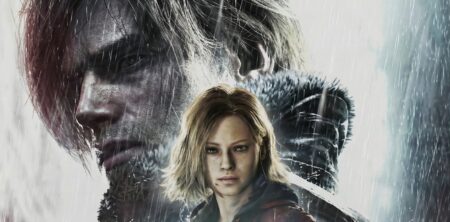With the success of Lords of the Fallen, Deck 13’s brand new IP promises to bring a fresh new perspective into the action RPG genre. The spotlight now shifts to Deck 13, a studio renowned for delivering captivating action RPG experiences. Will Deck 13 be able to prove itself being a newcomer in the genre? Or is Atlas Fallen just another blueprint of Lords of the Fallen?
Atlas Fallen will follow the adventure of an unidentified protagonist who will be the world’s final line of defense against the harsh tyrant in a post-war world controlled by the sun deity Thelos. Throughout the story, the protagonist will unlock the power of a magical bracelet, which allows him to defeat the tyrant ruler and free the oppressed. Once you unlock the open areas, you will be greeted as to how great the graphics are in the game. The sandy world felt alive and magical, as if it was inviting us to explore the harsh yet beautiful world of Atlas Fallen.
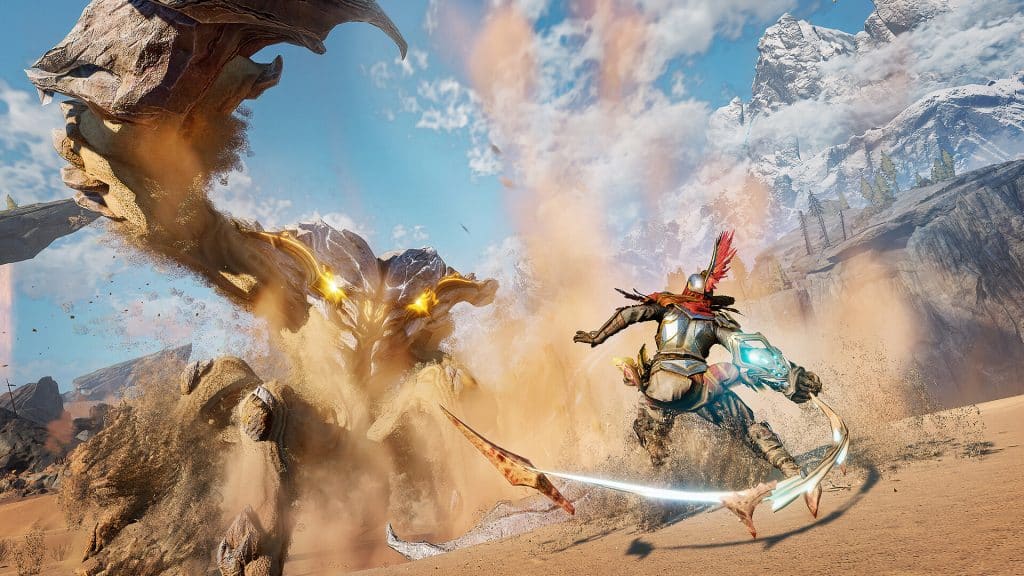
The main narrative was a missed opportunity on the developer’s part, mainly because the story has much potential to be fleshed out. It felt messy at some point because the introduction part of the story was slow-paced, and the plot did not pick up until the second half of the game. There are several moments where you will go from one location to another to access main story dialogues similar to Ubisoft games such as Assassin’s Creed and Watch Dogs; this felt fun at first due to the excellent traverse mechanics but felt more like a chore as the game progresses. Though intriguing, the plot felt short, and several characters were unfortunately forgettable due to the lackluster voice acting. There are a few plot highs and lows because the world-building and storyline felt convoluted at times due to bad scenario writing, which thankfully grew engaging towards the end of the game.
The battle mechanics, however, is a different story. The key mechanic of the game, called Momentum system, adds depth to the gameplay and is a fresh take on the Action RPG genre. With this new system, you can mix and match abilities and bonuses, which you must strategically place in each momentum bar. There are three main weapons at your disposal, and passive skills change as your momentum gauge reaches its peak. However, it might take a few tries; the fast-paced system feels fluid and well thought of. The parry system is good and the battles are fast-paced and fun. While it is evident that they borrowed some elements from God of War and Horizon Zero Dawn, the combat mechanics feels unique in their own way, which is a good thing.
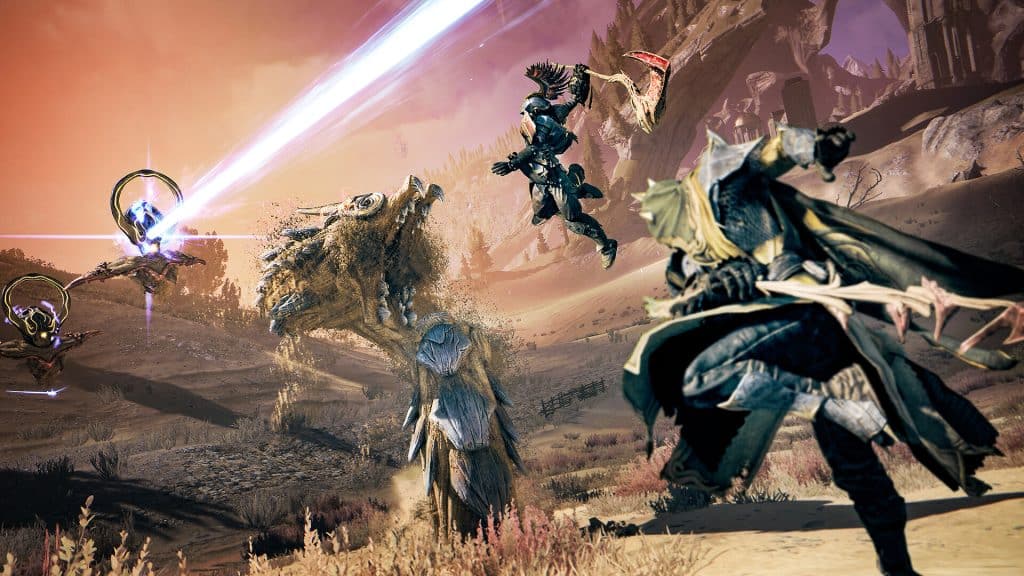
Having played the PS5 version of the game, the game felt polished as we have not encountered any game-breaking bugs or glitches throughout the game’s main scenario. There are two options of graphical settings to choose from: Performance and Graphics mode, both of which are standard in today’s gaming. It runs on 4K/30 fps on Graphics and 1440p/60 fps on Performance mode. Both modes are stable in our copy and have very minimal stutters thanks to the dynamic resolution implemented. Seeing a well-polished game in a sea of half-baked games filled with bugs and glitches is refreshing. Kudos to the team for delaying the game for a few months to polish the game.
Though there are some unfavorable aspects of the game, mainly in its narrative, there is no denying that Deck 13 remains triumphant in providing a fun and unique experience with the release of Atlas Fallen. While it is very apparent that Deck 13 wants to add variety to its portfolio of games, it’s far from a perfect game when it comes to story but has come a long way in combat mechanics. Albeit experimental in nature, we cannot wait to see what direction will Deck 13 bring their new combat mechanics and IP as we feel that it has a lot of potential. It’s a highly customizable action RPG that will attract those looking for button-smashing fun at the expense of an engaging and interesting story.


